Search Results for: Vertebrates
Skip to resultsCan’t find what you’re looking for? Visit our FAQ page.
1,543 results for: Vertebrates
-
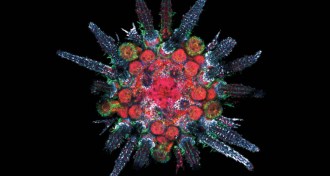 Animals
AnimalsSome animals ‘see’ the world through oddball eyes
Purple urchins, aka crawling eyeballs, are just one of several bizarre visual systems broadening scientists’ view of what makes an eye.
By Susan Milius -
 Life
LifeHow the Galápagos cormorant got its tiny wings
Galápagos cormorants’ tiny wings may be due to altered reception in cellular antennas.
-
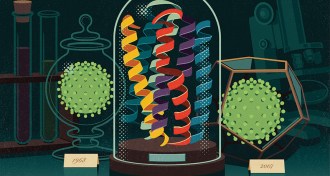 Life
LifeScientists dig up proteins from the past
To learn how today’s proteins evolved, scientists are reconstructing ancient molecules.
-
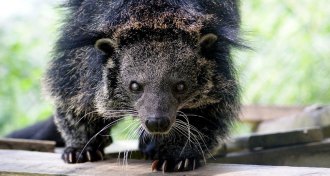 Animals
AnimalsChemical behind popcorn’s aroma gives a bearcat its signature scent
Bearcats smell like popcorn. Now scientists now why: The chemical responsible for popcorn’s alluring scent has been found in bearcat pee.
-
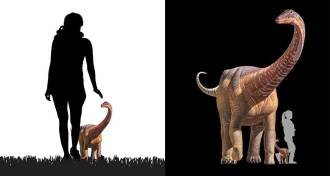 Paleontology
PaleontologyBaby titanosaur was parents’ Mini-Me
Babies of one species of titanosaur resembled mini-versions of full-grown adults, and probably acted like them, too.
By Meghan Rosen -
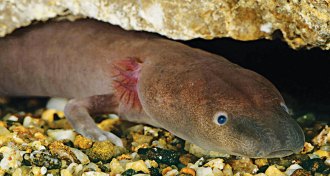 Animals
AnimalsCave-dwelling salamander comes pigmented and pale
Something’s funny in the family tree of pale, slinky cave salamanders.
By Susan Milius -
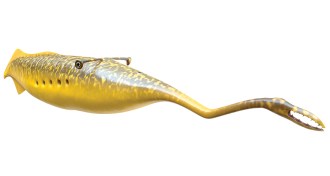 Paleontology
PaleontologyTrue nature of ‘Tully monster’ revealed
The identity of a 300-million-year-old enigmatic creature known as the “Tully monster” is a mystery no longer.
By Meghan Rosen -
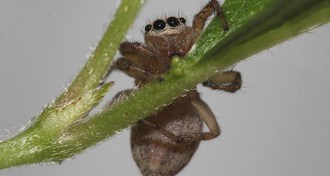 Animals
AnimalsSpider diet goes way beyond insects
Veggie-eating spiders have been found on every continent except Antarctica, a new study notes.
-
 Astronomy
AstronomyReaders tussle over top science stories of 2015
Readers tussle over the top spot in our top 25, questions about engineered vocal cords, and more in the February 20 Feedback.
-
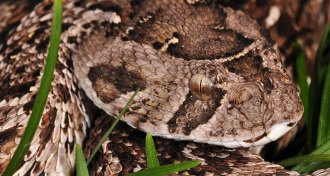 Animals
AnimalsPuff adders appear ‘invisible’ to noses
The snakey scent of puff adders proves difficult for even sensitive animal noses to detect.
By Susan Milius -
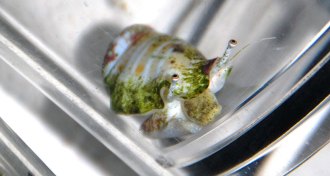 Animals
AnimalsHunchbacked conchs jump at the smell of danger
Hunchbacked conchs are among the most vigorous of snailkind’s few jumpers.
By Susan Milius -
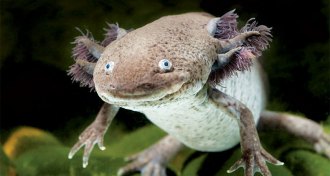 Animals
AnimalsSalamander ancestors could regenerate limbs
Salamanders and ancient amphibians share similar way of regenerating limbs.